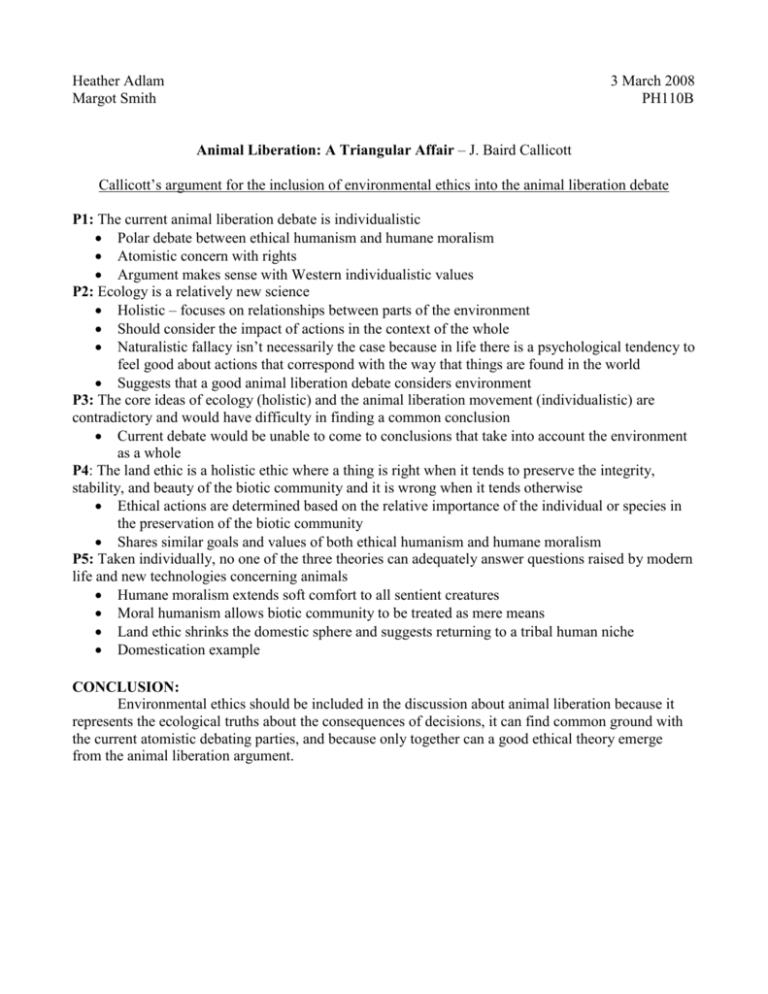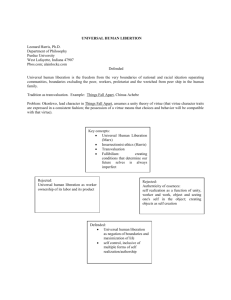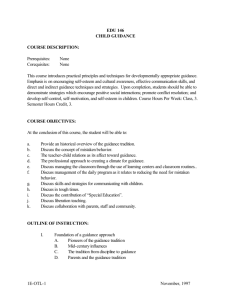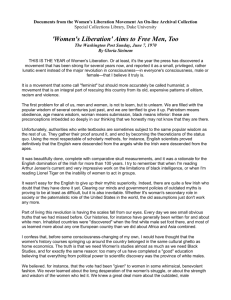"Animal Liberation: A Triangular Affair." By J.B. Callicott
advertisement

Heather Adlam Margot Smith 3 March 2008 PH110B Animal Liberation: A Triangular Affair – J. Baird Callicott Callicott’s argument for the inclusion of environmental ethics into the animal liberation debate P1: The current animal liberation debate is individualistic Polar debate between ethical humanism and humane moralism Atomistic concern with rights Argument makes sense with Western individualistic values P2: Ecology is a relatively new science Holistic – focuses on relationships between parts of the environment Should consider the impact of actions in the context of the whole Naturalistic fallacy isn’t necessarily the case because in life there is a psychological tendency to feel good about actions that correspond with the way that things are found in the world Suggests that a good animal liberation debate considers environment P3: The core ideas of ecology (holistic) and the animal liberation movement (individualistic) are contradictory and would have difficulty in finding a common conclusion Current debate would be unable to come to conclusions that take into account the environment as a whole P4: The land ethic is a holistic ethic where a thing is right when it tends to preserve the integrity, stability, and beauty of the biotic community and it is wrong when it tends otherwise Ethical actions are determined based on the relative importance of the individual or species in the preservation of the biotic community Shares similar goals and values of both ethical humanism and humane moralism P5: Taken individually, no one of the three theories can adequately answer questions raised by modern life and new technologies concerning animals Humane moralism extends soft comfort to all sentient creatures Moral humanism allows biotic community to be treated as mere means Land ethic shrinks the domestic sphere and suggests returning to a tribal human niche Domestication example CONCLUSION: Environmental ethics should be included in the discussion about animal liberation because it represents the ecological truths about the consequences of decisions, it can find common ground with the current atomistic debating parties, and because only together can a good ethical theory emerge from the animal liberation argument.











